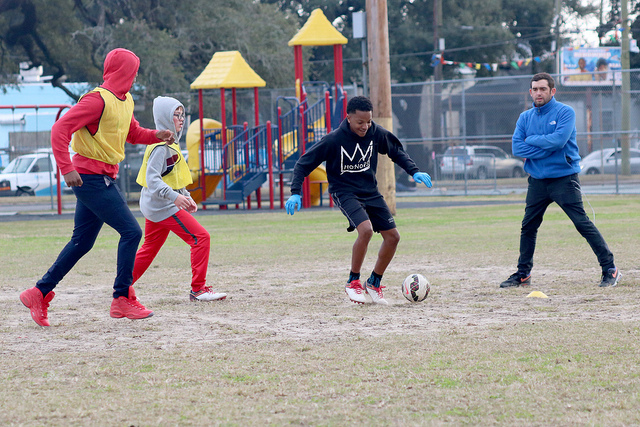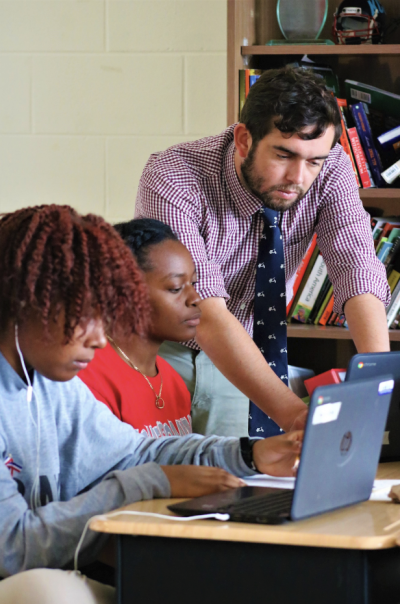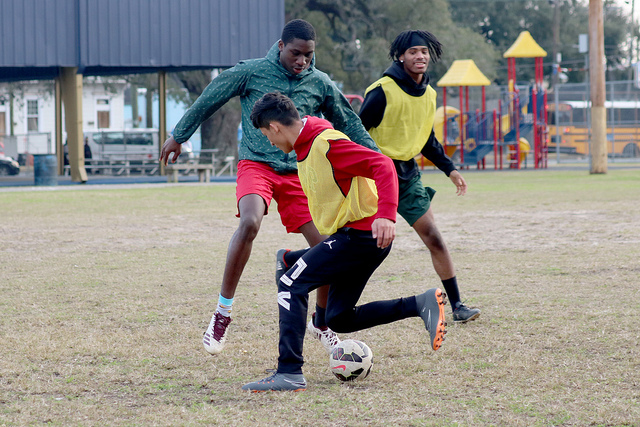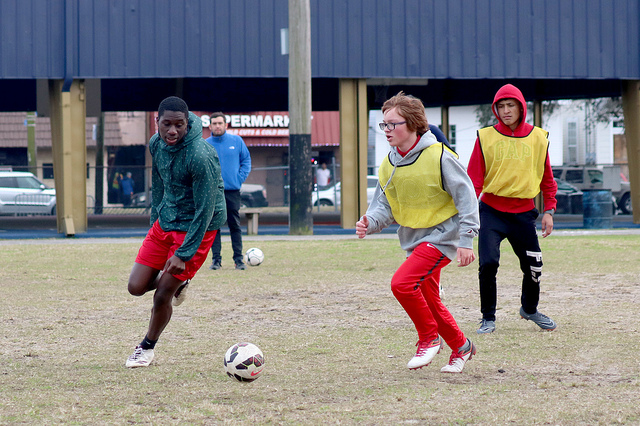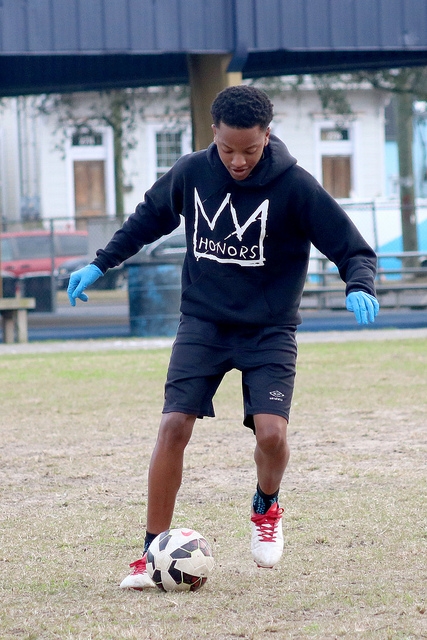Adam Kohler is a Dean of Instruction and AP World History teacher at KIPP Booker T. Washington High School. He is a 2018 recipient of the New Orleans Excellence in Teaching Award.
When Alden scored his first goal of the season this year, it brought me to tears. Our team watched as he raised his hands in the air with pride. Then he got right back to the game, playing as hard as ever.
I am a teacher and Dean of Instruction at KIPP Booker T. Washington High School, but I am also proud to be our school’s soccer coach. In this role, I see the power of athletics in a student’s life.
Soccer is a chance for many of my players to begin believing in themselves – first on the field, then in the classroom. Many begin each season with no knowledge of the game. Some think they are simply unathletic because they haven’t found a sport they enjoy. Soccer is an opportunity for them to reset the expectations they have for themselves and thrive.
This was the case for Alden. Today, he is in the 11th grade, but I first coached him seven years ago. He was in middle school at KIPP Central City Academy, where I taught at the time.
It was my first year coaching, and Alden and his older brother were members of our founding team. At first, Alden had no idea how to play. He wasn’t sure he’d like the game at all. But as he learned the fundamentals of soccer, Alden became more confident. He was more energetic at practice and he improved each day. He started calling himself “Messi,” after the Argentine player Lionel Messi; he made the sport a part of his identity.
The confidence Alden felt on the soccer team seeped into his academics as well. As his first season wore on, he raised his hand more often, asked questions, and shared great ideas. For Alden, the soccer field had been the perfect place to get comfortable with trying something new. He saw himself go from uncertainty to clarity, and from a lack of knowledge to a growing expertise. The pride he felt scoring that first goal of the season was the culmination of many years of hard work, and he shared that with his teammates. We started as a small, scrappy middle school crew with no experience, and became a full Louisiana High School Athletic Association team that really knows the sport.
For other students I teach, soccer is one of the few things that isn’t new in their lives. For these students, the game is a source of familiarity. In recent years, my school has had large numbers of students arrive from Honduras and Guatemala. Many spoke no English when they arrived. Every day in school, they are learning a new language, getting to know a new culture, meeting new friends, and adjusting to a new nation. There is so much they’re experiencing for the first time.
So when these students step onto the soccer field, they light up. Soccer is incredibly popular in both Guatemala and Honduras, and for many of our students, it was a huge part of life before they moved. Here in New Orleans, they’re getting used to so much, but on the field, they can finally show off what they know.
One of my students, Santos, came to us in 7th grade; he was shy and nervous and spoke no English at all. But he joined the soccer team and quickly thrived. In his second season, he lead the KIPP Central City Academy team in winning the New Orleans Charter School Athletic Association Championship and was league MVP. Now, as a high school student, Santos is still a star of his team. He’s also entirely fluent in English, his reading level has jumped dramatically, and he is one of the most positive students at our school. His incredible knowledge of soccer made it easier to take on what he didn’t know in class.
I’ve noticed that for all of my players – whether they are new to soccer or have been playing it for years – being on the team improves their relationship with school itself. Attendance rates go up and class participation rises. My first principal in this city used to say that “every child needs a home at school,” whether it’s in English class, in the band, or on the football field. When students have these “homes,” they feel safer and engaged, and their place in the school community becomes part of their identity. That’s a powerful thing!
Next year, I enter my second decade as an educator. As I go forward, I will keep supporting students as they find their “homes” at school, whether through athletics, academics, music, or art.
I am certain that from the classroom to the playing field, they will continue to inspire me with their openness to new experience and their determination to always learn more.
